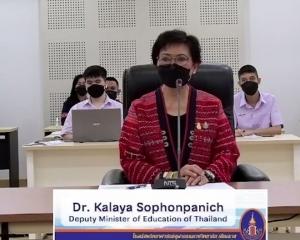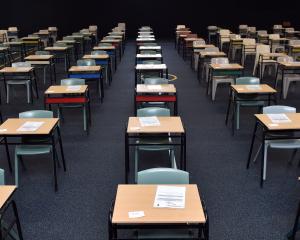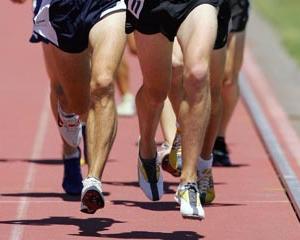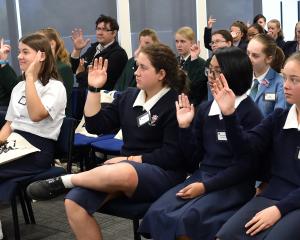
During a speech in Auckland yesterday, National leader John Key said the number of children participating in sport was declining, despite the "obvious" benefits for the children and the wider community.
Mr Key said he would give schools additional resources over time to ensure more pupils could take part in extracurricular organised sport.
He would also ensure more of the Government's sport spending got to the front line.
He said too much Government funding never reached its intended target because it was soaked up by bureaucrats.
"Almost a third of Sport and Recreation New Zealand's money - $35 million - never makes it outside the Wellington head office," he said.
"This year, SPARC will spend $5.5 million on its website, and between 2006 and 2010 it has budgeted $11.5 million for the website."
Mr Key said $11.5 million would give almost $6000 worth of sports equipment to every primary school in New Zealand.
Significant amounts of Government funding were also wasted on overlapping programmes and initiatives, he said.
"It's hard to understand why we need at least eight different Government programmes encouraging people to eat healthier and exercise more.
"National will look at all these to ensure we get the balance right between funding promotional programmes and telling people to lead healthier lifestyles, and funding actual sports organisations with actual facilities at which sport is actually played."
Mr Key said funding for the party's policy would come from re-prioritising Government funds presently dedicated to the host of "bureaucratic" anti-obesity campaigns.
Following Mr Key's speech, SPARC clarified that its internal operating costs "which include staff managing national and regional programmes, are approximately $12.7 million for 2007-08 [12% of SPARC's total budget]".
National's policy was welcomed by Otago Southland Principals' Association chairman Mike Corkery.
He said Mr Key's ideas seemed sensible.
"We've all felt frustrated at how the bureaucracies soak up funding that is aimed at sport.
"The more resources and funding we could get in schools for sport and other related activities, the better it will be for all of our students."
While Otago Primary Principals Association chairman Andy Larson was also positive about the potential of Mr Key's policy, he was sceptical.
"Anything that encourages children to participate in sport will be accepted by schools. But there is still too little detail in his policies for me to be convinced.
"We'll just have to wait and see."
However, Sport and Recreation Minister Clayton Cosgrove described the policy as simplistic and out of touch.
Mr Cosgrove said the amount of taxpayer money being spent to administer Sparc had been falling as a proportion of total expenditure.
Since Sparc was established in 2003, administrative costs had been cut from about 18% to 12% of total expenditure, a 30% drop.
Mr Cosgrove said National was seriously out of touch with its plan to give schools some more bats and balls in the hope that children will simply just decide to use them.
"In the old days, you didn't have to convince kids to get off the couch, but today there are so many competing influences that you have to use technological channels such as TV and the Internet to reach them.
"That is why we need programmes such as Mission On and Push Play that encourage Kiwis of all ages to get active and stay healthy."
"It is important that schools are provided with quality sports equipment and that is happening, but we are also providing meaningful assistance for schools, such as classroom resources and sports co-ordinators, so that the onus is not all on teachers to commit more of their own time after school to get students active, as Mr Key suggests."











